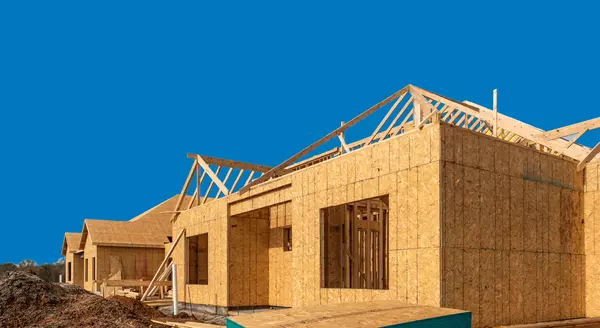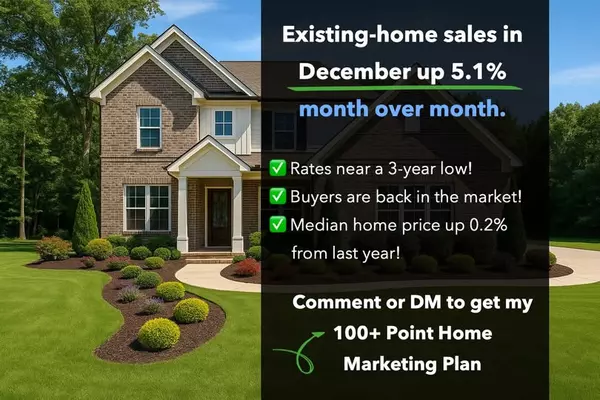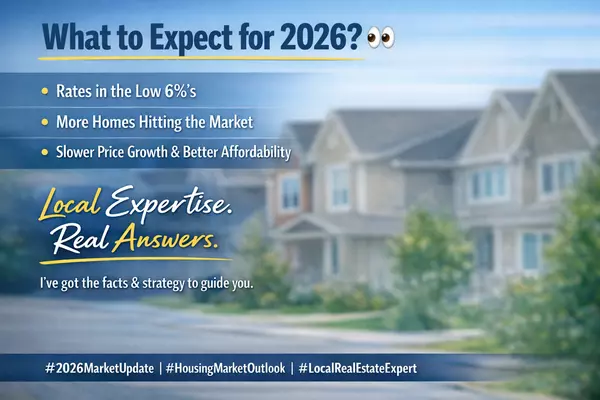What a Fed Rate Cut Could Mean for Mortgage Rates

The Federal Reserve (the Fed) meets this week, and expectations are high that they’ll cut the Federal Funds Rate. But does that mean mortgage rates will drop? Let’s clear up the confusion.The Fed Doesn’t Directly Set Mortgage RatesRight now, all eyes are on the Fed. Most economists expect they'll cu
Read MorePatience Won’t Sell Your House. Pricing Will.

Waiting for the perfect buyer to fall in love with your house? In today’s market, that’s usually not what’s holding things up. And here’s why.Let’s be real. Homes are taking a week longer to sell than they did a year ago. According to Realtor.com:“Homes are also taking longer to sell. The typical ho
Read MoreMortgage Rates Just Saw Their Biggest Drop in a Year

You’ve been waiting for what feels like forever for mortgage rates to finally budge. And last week, they did – in a big way.On Friday, September 5th, the average 30-year fixed mortgage rate fell to the lowest level since October 2024. It was the biggest one-day decline in over a year.What Sparked th
Read MoreWhy 50% of Homes Are Selling for Under Asking and How To Avoid It

If your selling strategy still assumes you’ll get multiple offers over asking, it’s officially time for a reset. That frenzied seller’s market is behind us. And here are the numbers to prove it. From Frenzy to “Normal”Right now, about 50% of homes on the market are selling for less than their asking
Read MoreBuilder Incentives Reach 5-Year High

Even with more homes on the market right now, some buyers are still having a tough time finding the right one at the right price. Maybe the layout feels off. Maybe it still needs some updating. Or maybe it’s just more of the same.That’s why more buyers are turning to new construction – and finding s
Read MoreWhat Mortgage Delinquencies Tell Us About the Future of Foreclosures

You may be seeing headlines about how foreclosures are rising. And if that makes you nervous that we’re headed for another crash, here’s what you should know. According to ATTOM, during the housing crash, over nine million people went through some sort of distressed sale (2007-2011). Last year, ther
Read MoreThinking About Renting Your House Instead of Selling? Read This First.

If your house is on the market but you haven’t gotten any offers you’re comfortable with, you may be wondering: what do I do if it doesn’t sell? And for a growing number of homeowners, that’s turning into a new dilemma: should I just rent it instead?There’s a term for this in the industry, and it’s
Read MoreWhat Everyone’s Getting Wrong About the Rise in New Home Inventory

You may have seen talk online that new home inventory is at its highest level since the crash. And if you lived through the crash back in 2008, seeing new construction is up again may feel a little scary.But here’s what you need to remember: a lot of what you see online is designed to get clicks. So
Read MoreHistory Shows the Housing Market Always Recovers

Now that the market is slowing down, homeowners who haven’t sold at the price they were hoping for are increasingly pulling their homes off the market. According to the latest data from Realtor.com, the number of homeowners taking their homes off the market is up 38% since the start of this year and
Read MoreShould You Still Expect a Bidding War?

If you’re still worried about having to deal with a bidding war when you buy a home, you may be able to let some of that fear go.While multiple-offer situations haven’t disappeared entirely, they’re not nearly as common as they used to be. In fact, a recent survey shows agents reported only 1 in 5 h
Read MoreFrom Frenzy to Breathing Room: Buyers Finally Have Time Again

If you tried to buy a home a few years ago, you probably still remember the frenzy. Homes were listed one day and gone the next. Sometimes it only took hours. You had to drop everything to go and see the house, and if you hesitated even slightly, someone else swooped in and bought it – sometimes eve
Read MoreCondos Could Be a Win for Today’s Buyers

Not every homebuyer wants the biggest house on the block. Some want something simpler, more affordable, and easier to maintain, especially in a market where every dollar counts. That’s where condos come in.For first-time buyers, they can be a smart way to get into homeownership without stretching yo
Read MoreMore Contracts Are Falling Through. Here’s How To Get Ahead.

When you sell a house, the last thing you want is for the deal to fall apart right before closing. But according to the latest data from Redfin, that’s happening a bit more often lately. The good news is, it’s completely avoidable if you lean on an agent for insight into why that is and how to avoid
Read MoreIs It Better To Buy Now or Wait for Lower Mortgage Rates? Here’s the Tradeoff

Mortgage rates are still a hot topic – and for good reason. After the most recent jobs report came out weaker than expected, the bond market reacted almost instantly. And, as a result, in early August mortgage rates dropped to their lowest point so far this year (6.55%).While that may not sound like
Read MoreAre These Myths About Buying a Newly Built Home Holding You Back?

If you’ve been skipping over newly built homes in your search, you might be doing so based on outdated assumptions. Let’s clear up a few of the most common myths, so you don’t miss out on a solid opportunity.Myth 1: New Homes Are More ExpensiveIt’s easy to assume a new build will cost more than an e
Read MoreWhat You Need To Know About Concessions
Some HighlightsNow that there are more homes for sale, buyers have more options. And sellers need to be more flexible to close the deal.That's why almost half of homeowners are making some type of concession. This can include covering closing costs, paying for repairs, or dropping the price.Not sure
Read MoreOnline Home-Buying Search Terms Recently Hit 2-Year High

Believe it or not, there are clear signs buyer interest is heating up again.Let’s talk about what’s really going on behind the scenes, and why the housing market might not be as quiet out there as it seems. Buyers Are Looking, and Search Trends Prove ItOne of the clearest ways to measure what people
Read MoreWhy Selling Without an Agent Can Cost You More Than You Think

Cutting out the agent might seem like a smart way to save when you sell your house. But here’s the hard truth.Last year, homes that sold with an agent went for almost 15% more than those that sold without one.That gap is pretty hard to ignore. And with more homes on the market to compete with right
Read MoreA Second Home Might Be the Missing Piece in Your Retirement Plan

Are you wondering if you’re on track to retire someday?According to Intuit, 69% of people say today’s financial environment makes it tough to plan for the future, and 68% aren’t sure they’ll ever be able to retire. That’s why many people are exploring new ways to build stability and long-term income
Read More3 Advantages of Buying a Newly Built Home Today

Some HighlightsPrices, rates, and finding the right home are three of the biggest challenges for buyers today. You may find better luck with all 3 if you look at newly built homes.There are more available. Builders are more flexible on prices right now. And people who buy new homes tend to get lower
Read More
Categories
Recent Posts











